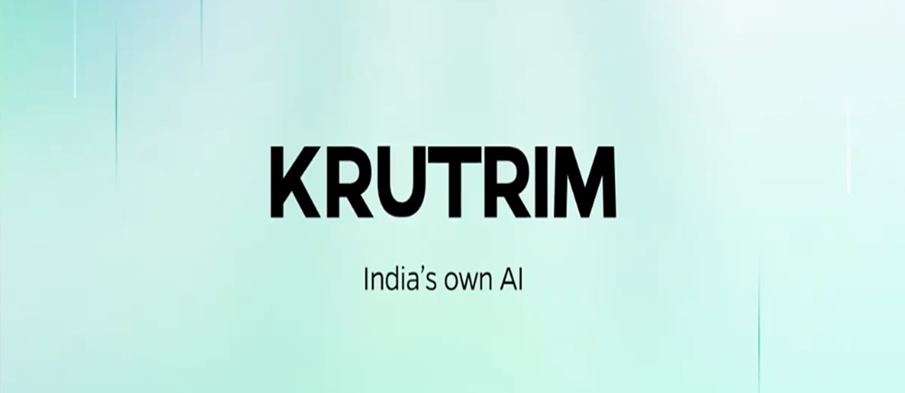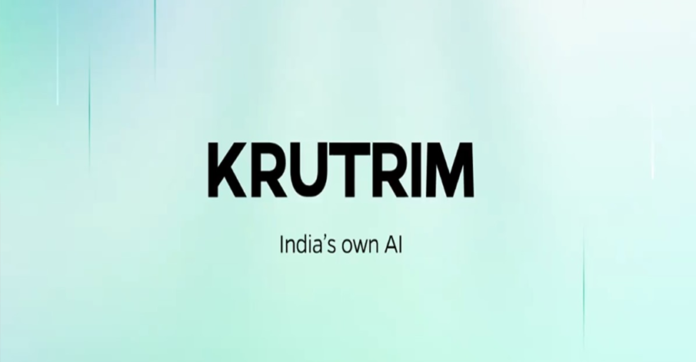
Bhavish Aggarwal’s AI startup, Krutrim, made an announcement on Saturday introducing a range of offerings aimed at advancing AI innovation in India.
The company launched Krutrim Cloud, which provides access to extensive language models, AI compute infrastructure, and location services APIs. Additionally, Krutrim unveiled a standalone Android app for its AI chatbot, with an iOS version anticipated in the near future.
According to Bhavish Aggarwal, founder of Krutrim and Ola, these initiatives are intended to develop comprehensive AI capabilities that enable enterprises, researchers, and developers to create cutting-edge technology products at a fraction of current costs.
Krutrim Cloud services, referred to as “Krutrim Cloud,” will grant developers and enterprises access to advanced GPU resources and hardware to accelerate AI projects and enhance productivity. Developers will have the ability to monitor usage, manage resources, and scale based on project requirements.
Moreover, Krutrim will provide APIs with inferencing capabilities to support the development of generative AI applications. The platform will host prominent open-source AI models, including Krutrim’s own models and those from global players like Microsoft Azure, Google Cloud, and Amazon Web Services.
A key offering within this full-stack approach is Model-as-a-Service (MaaS), which gives developers access to foundational language models from Krutrim, alongside open-source models hosted on its cloud. These models, combined with Python SDKs, are designed to facilitate the creation of India-specific AI products by leveraging Krutrim’s expertise in Indian languages and cultural context.
Furthermore, Krutrim Cloud will offer GPU-as-a-Service, allowing enterprises and developers to train, fine-tune, and deploy their AI models on cutting-edge computing infrastructure.
For enterprises focused on location-based services, Krutrim will provide APIs and SDKs like Places API for location finding, Tiles API for efficient map loading, Routing APIs for turn-by-turn directions, and Navigation SDKs.
Krutrim also launched a mobile app for its AI assistant, which is built on the company’s large language model trained on over 2 trillion tokens of Indian language data. The assistant currently supports over 10 Indian languages with plans to expand to all 22 scheduled languages. It can integrate with other apps, adapt to user preferences, and provide personalized suggestions.
Aggarwal envisions creating a comprehensive maps platform to support broader technological and economic advancement initiatives in India, including the development of MapGPT for natural conversations with location-aware AI assistants and community-driven features for real-time traffic and road updates.
“With Krutrim, our enterprises and developers will no longer need to rely on complex and costly Western cloud platforms that are not optimized for Indian use cases,” Aggarwal emphasized. He also claimed that Krutrim is now the most affordable open-source cloud service provider globally, although pricing strategies for the offerings are yet to be unveiled.
Krutrim aims to execute its AI vision in a more sustainable manner compared to global players, focusing on building technologies for energy management to create the most efficient data centers in the world.
The company plans to develop indigenous data centers, server computing, edge computing, and supercomputers, with prototypes for its own silicon chip scheduled for mid-2024 and production targeted for the end of 2025.
“We are designing our own silicon for GPU workloads as well as general-purpose computing,” Aggarwal explained.
Earlier this year, Krutrim achieved unicorn status following a $50 million financing round at a $1 billion valuation, led by Matrix Partners India, an early supporter of Aggarwal’s ventures, including Ola Cabs and Ola Electric, which is preparing for an IPO in the future.




